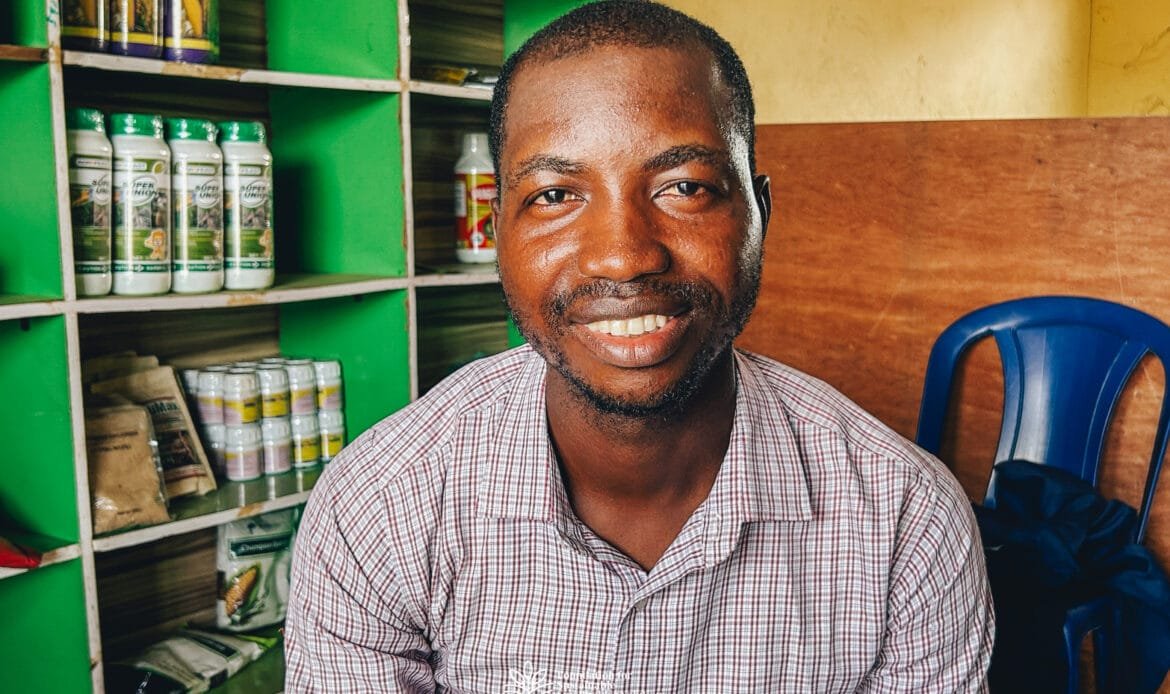When 27-year-old Adedamola Olasukanmi looks out over the lush green fields surrounding Ago-Are, the community he hails from and holds dear to his heart in Atisbo Local Government Area of Oyo State, he sees more than rows of crops; he sees the fruits of progress from seeds he planted. Just a few years ago, the same land was home to struggling farmers whose yields were low, inputs poor, and market access uncertain. Today, under his guidance as Farmers’ Hub Manager at Ago-Are Farmers’ Hub, those same farmers are actors in their own stories.
As a young university student, Adedamola decided to test a new variety of tomato — a move that was met with doubt by many in his village who believed it would not succeed. But that was not the start of his story; we have to go further back, as narrated by Adedamola himself.
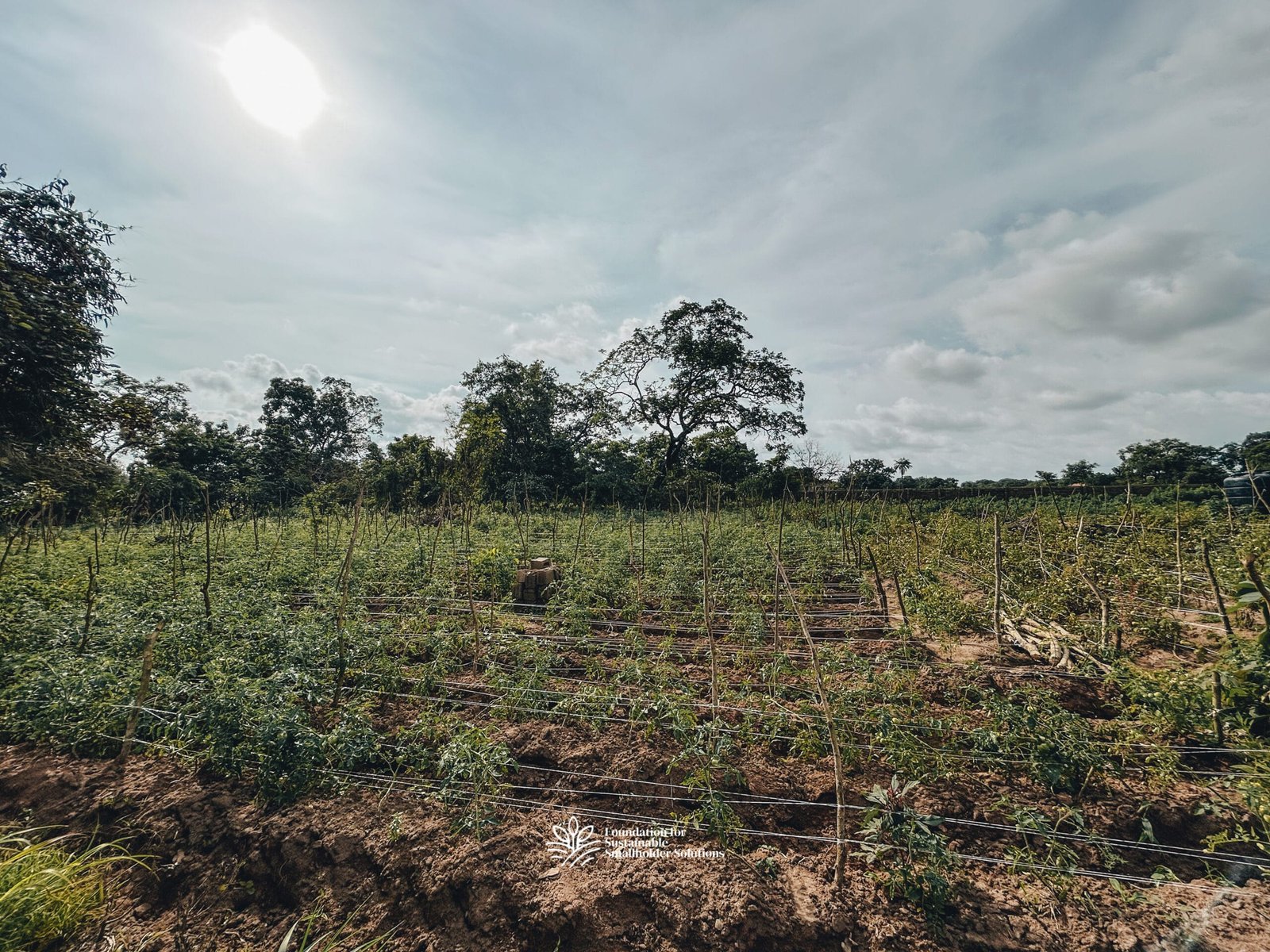
“I grew up in a rural family where farming was just a means of survival,” Adedamola begins. “My parents practised subsistence farming, and I used to help them after school. At the time, I didn’t think farming could be a career.”
From those humble beginnings, everything changed for him when he gained access to a smartphone. “That was my turning point,” he says with a smile. “I started watching agricultural videos, following experts online, and reading about hybrid seeds and modern practices. It opened my eyes to what was possible.”
That curiosity turned into action in 2019, while he was waiting for university admission. He decided to test what he had learnt by planting hybrid tomatoes; a move that many in his community doubted.
“They told me hybrid tomatoes wouldn’t survive in our soil — that they wouldn’t grow here, that the soil was too poor for hybrid seeds,” he recalls, smiling at the scepticism that once met his efforts. “But I wanted to prove that modern innovation could work even in our rural environment.” He did more than that; he proved that a single farmer’s determination can reshape an entire community.
The result was remarkable. His hybrid tomatoes thrived, yielding better and selling faster than the local varieties. “That harvest changed everything. People who had doubted me started asking how I did it,” he says.
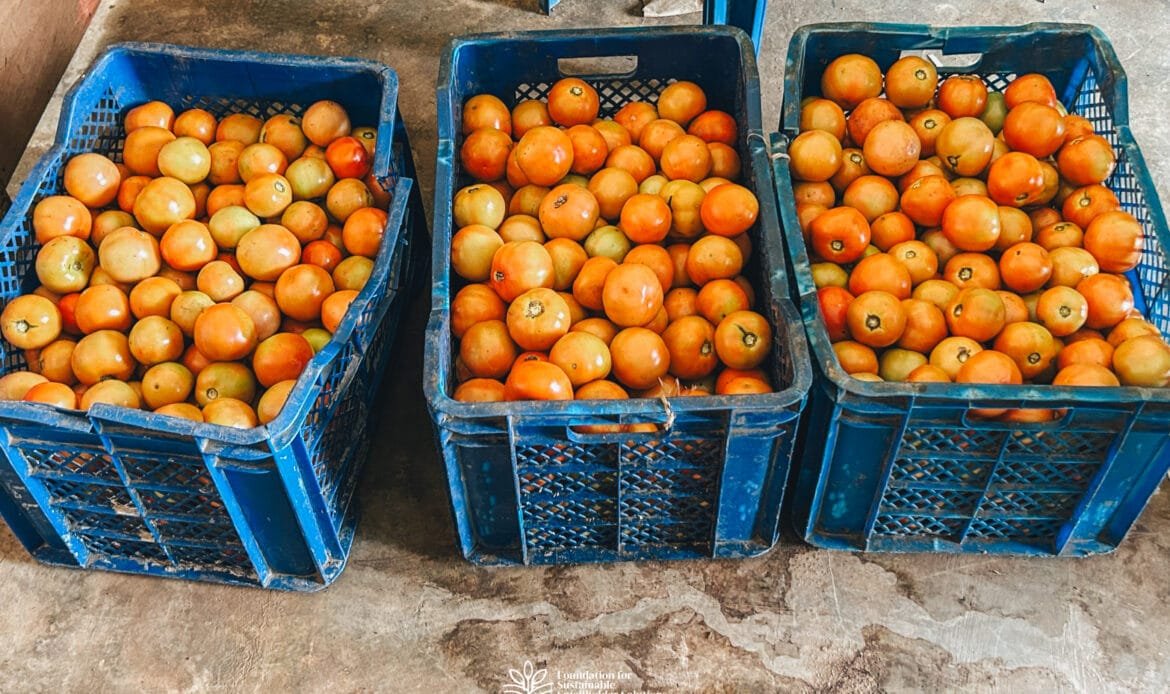
Then the COVID-19 pandemic struck, with its attendant lockdown in 2020, which forced Adedamola to return home from university in Akure — a situation he saw as an opportunity in the midst of adversity and seized. He mobilised his friends and some local youths to join him in expanding his tomato production.
“Rather than stay idle, I gathered some of my friends and said, ‘Let’s farm.’ We expanded tomato planting together, and the results spoke for themselves. We took our produce to the market, and everyone was amazed at the quality. We didn’t just plant; we learnt together,” he says proudly.
What began as a one-man experiment soon became a movement. By the end of that year, more than twenty farmers in Ago-Are had adopted hybrid tomato varieties, marking the start of a quiet agricultural revolution.
Motivated by his success, Adedamola decided to establish Sundam Agriservice Centre in late 2020 — a space where farmers could access quality inputs, receive free training, and market their produce collectively.
“I wanted to create a place where farmers could walk in freely, learn, and get help whenever they faced challenges,” he explains. “We started offering free training, visiting farms, and linking farmers with better seeds and fertilisers. That’s how things began to change.”
His efforts soon caught the attention of the Foundation for Sustainable Smallholder Solutions (FSSS), which recognised the potential in his grassroots initiative. The Foundation provided critical support by helping to build a befitting Farmers’ Hub equipped with a greenhouse and a training centre, enabling Adedamola to scale up his work and reach more farmers.
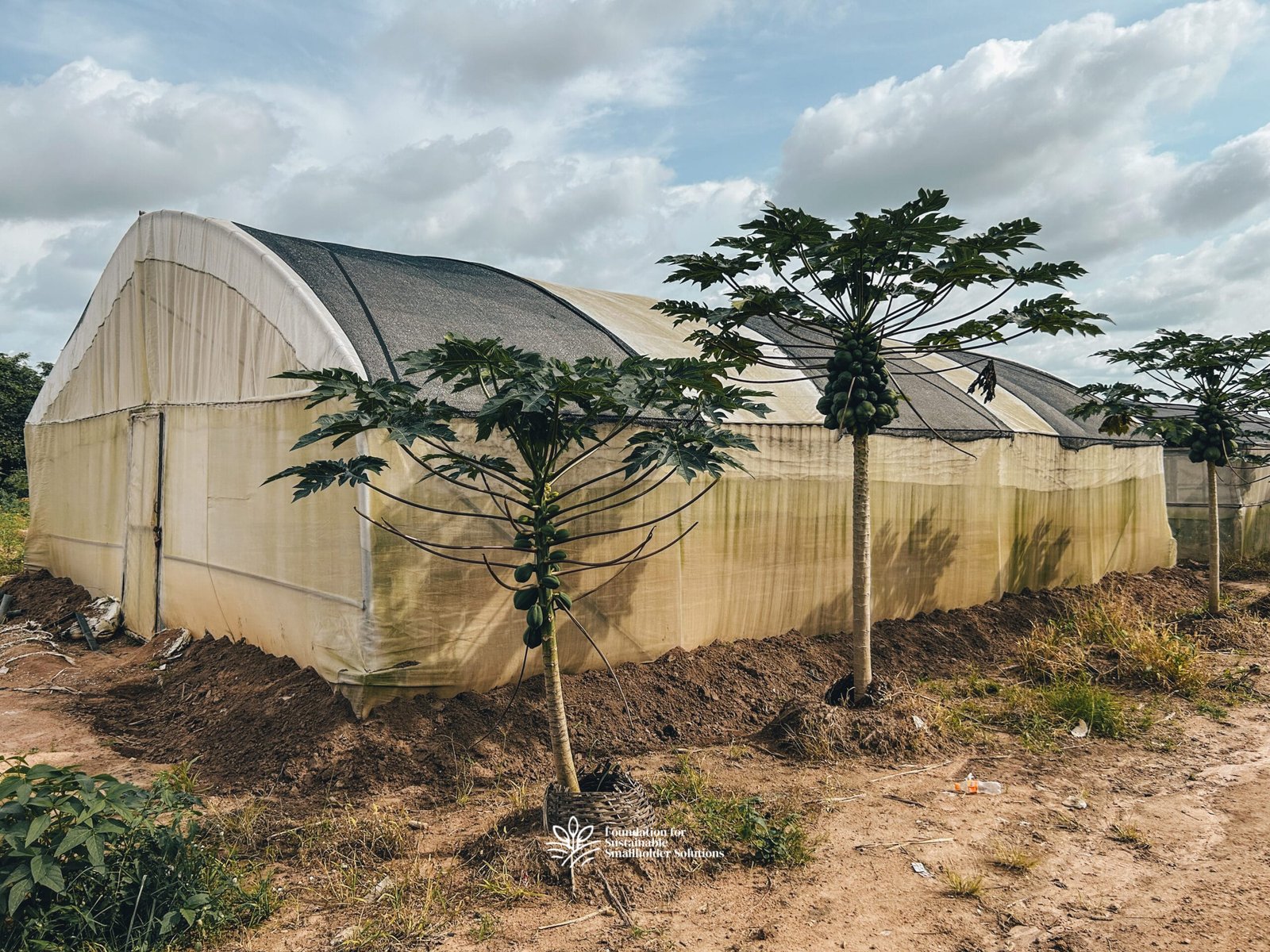
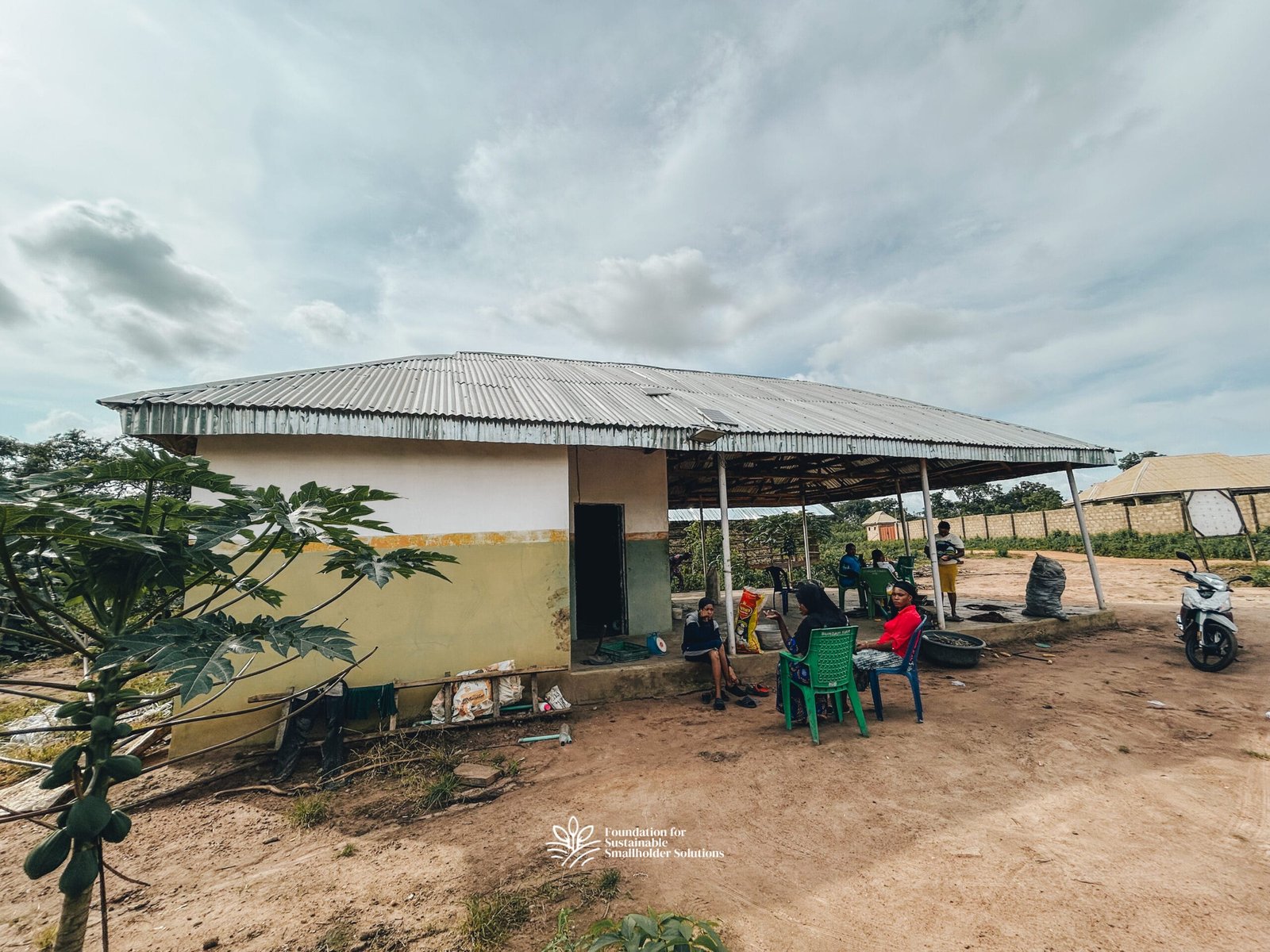
“Before the Foundation’s intervention, we struggled to get quality inputs and access reliable markets,” he says. “Now, we can aggregate produce from farmers and sell directly to urban buyers. It’s transformed how farming is done here.”
For local farmers in his community, the hub has become more than a service centre; it is a symbol of hope. “They call it the Farmers’ Hospital,” Adedamola says with pride. “When a farmer’s crops are ‘sick’, they come here for help. We diagnose the problem — whether it’s seed quality, fertiliser use, or pest control — and find a solution.”
In terms of those the hub has impacted, he recalls the story of one maize farmer who planted over 200 acres but harvested less than two tonnes per hectare. “We worked with him, introduced hybrid maize seeds, and taught him good agricultural practices. The next season, he planted just 80 acres and still harvested more than he had from 200 acres. His income rose, and his confidence grew. That’s the kind of impact that keeps me going.”
The ripple effects are visible throughout the community. Farmers are earning more, local youths and children now see agriculture differently, and many find employment through the hub, helping to raise seedlings, sort produce, and manage aggregation. “For me, that’s the real achievement — seeing young people gain hope and dignity through farming,” Adedamola says.
He credits much of his success to the Foundation’s partnership. “The Foundation didn’t just support us financially; they believed in our vision,” he says. “Through their training and mentorship, I gained the knowledge and confidence to expand my work. I now have my own farm, and I’m making a living doing what I love.”
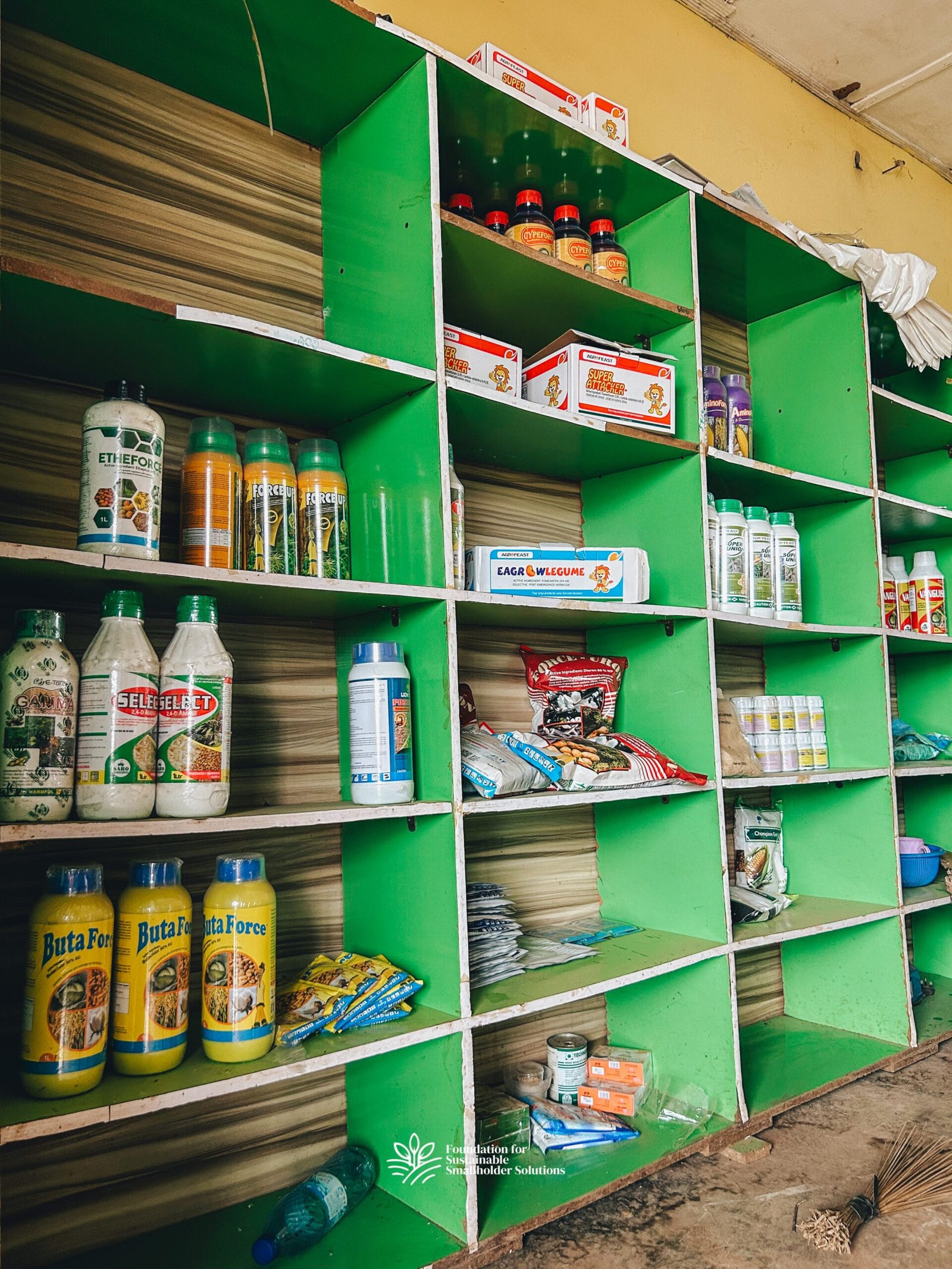
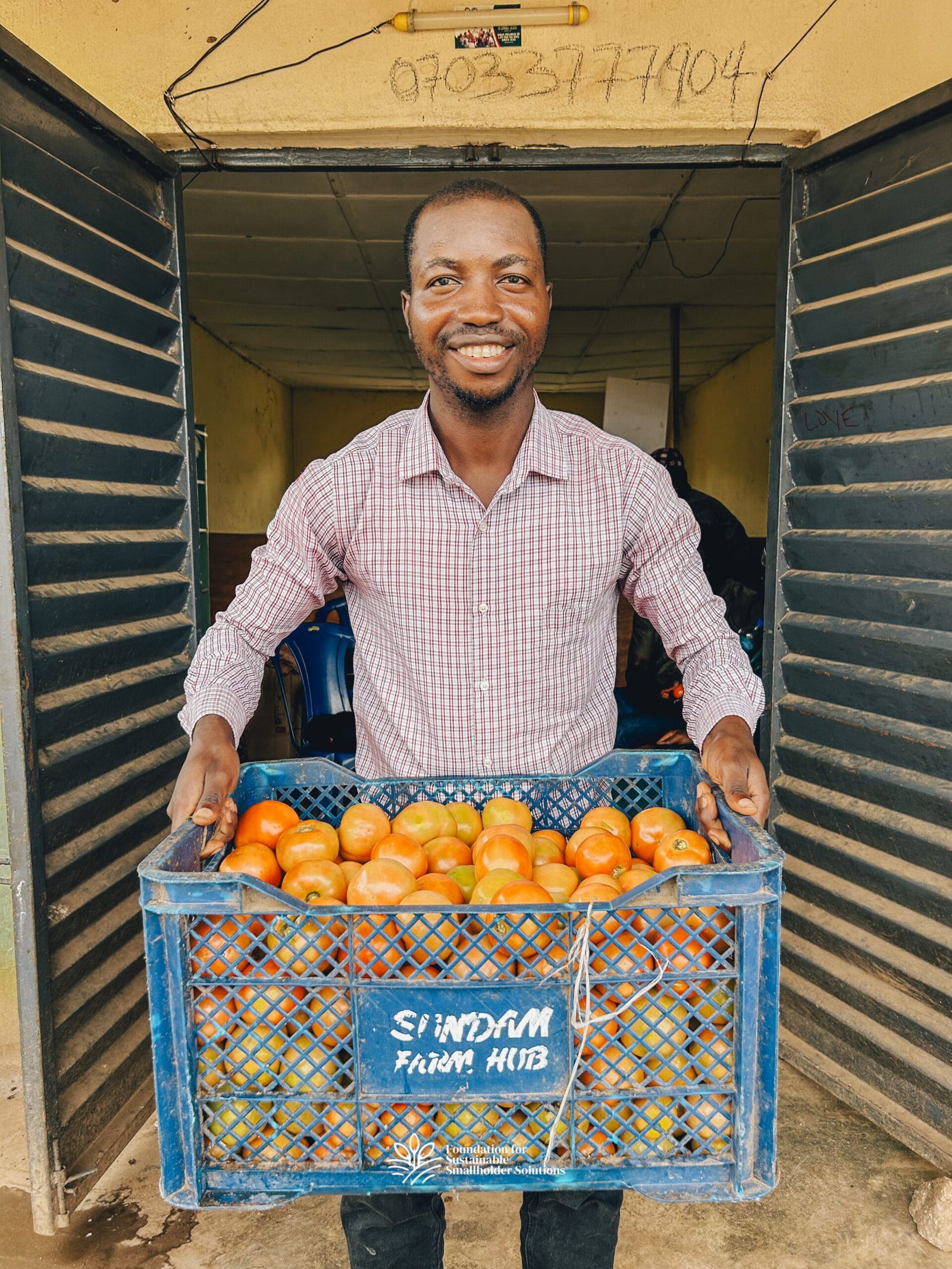
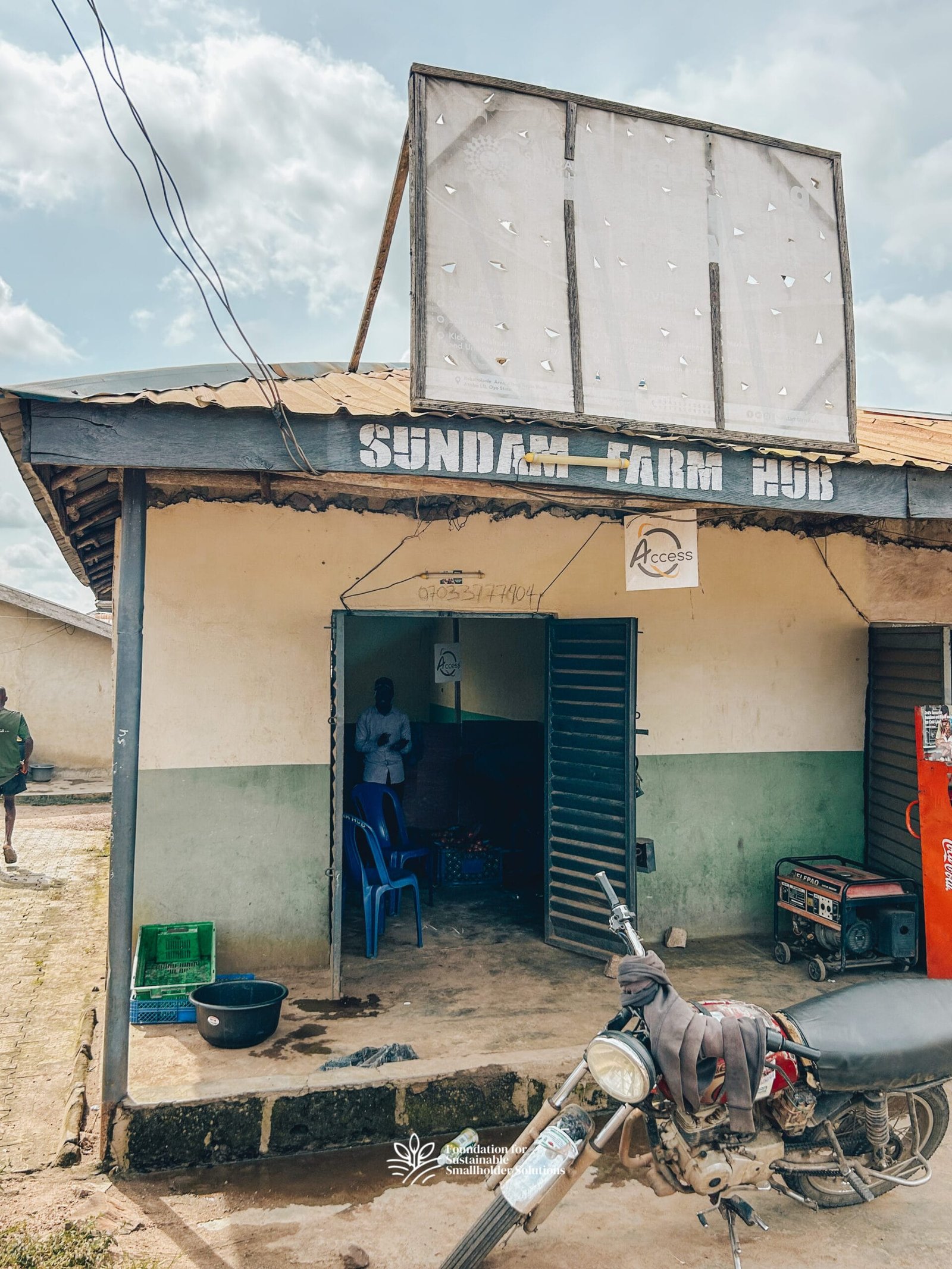
Today, Sundam Farmers’ Hub stands as a thriving model of how youth innovation, community cooperation, and institutional support can transform rural economies. Farmers now have access to quality seeds, reliable markets, and continuous learning — all under one roof.
Looking ahead, Adedamola dreams of expanding the hub’s reach. “We want to take this model to neighbouring communities,” he says. “We want to change how people see farming — from subsistence to agribusiness. We also want to involve more women, because they play a vital role in agriculture.”
From a small farm experiment in 2019 to a community Farmers’ Hub serving dozens of farmers today, Adedamola’s journey tells a powerful story — one of knowledge, partnership, and persistence.
Thanks to the Foundation’s support and his determination, the community of Ago-Are is now a shining light of agricultural innovation, a place where farming no longer means survival but economic opportunity.


